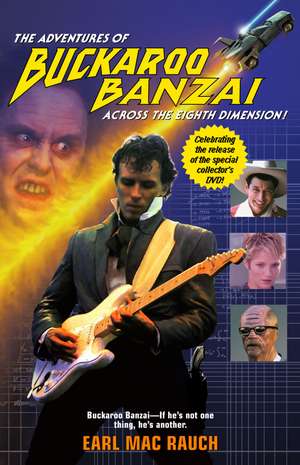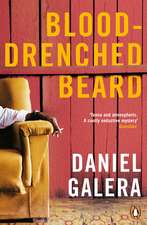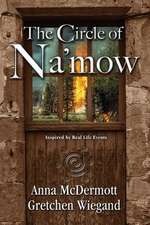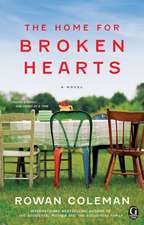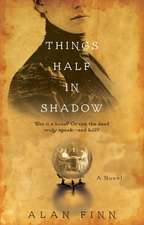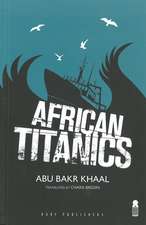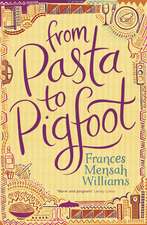The Adventures of Buckaroo Banzai
Autor Earl Mac Rauchen Limba Engleză Paperback – 30 noi 2001
-- Buckaroo Banzai
Buckaroo Banzai. A strange, elusive figure, his name whispered in barrooms and boardrooms, his advice sought by pashas and presidents, his exploits recounted in movies, novels, and comic books that seem somehow more real than life itself.
Buckaroo Banzai. First and foremost an extraordinary brain surgeon. In his spare time designer and driver of the electrifying Jet Car, a speed machine faster than sound! Buckaroo Banzai. A happy man whose life has been marked by great tragedy, who speaks a dozen languages and writes songs in all of them. His musical sidekicks the Hong Kong Cavaliersó Rawhide, Reno, the Swede, Perfect Tommy, Flyboy, Big Norse, Pecosóare one of the toughest, most popular hard-rocking bar bands in east Texas.
Join Team Banzai on their two-fisted, action-packed assault against the evil red Lectroids from Planet 10! Experience the horrors of the Shock Tower and the Pitt deep within the walls of Yoyodyne Propulsion Systems as Buckaroo Banzai fights against impossible odds to rescue Penny Priddy from the clutches of Dr. Emilio Lizardo, the diabolically alien dictator. Pray that Buckaroo will succeed, knowing only too well that if he fails the Earth itself will be blown to dust!
For the first time in nearly twenty years, Pocket Books is proud to present The Adventures of Buckaroo Banzai. This special edition features a new introduction by the author and a color insert featuring photos and illustration seen here for the very first time!
No matter where you go, there you are.
Preț: 117.65 lei
Nou
Puncte Express: 176
Preț estimativ în valută:
22.52€ • 24.47$ • 18.93£
22.52€ • 24.47$ • 18.93£
Carte disponibilă
Livrare economică 31 martie-14 aprilie
Preluare comenzi: 021 569.72.76
Specificații
ISBN-13: 9780743442480
ISBN-10: 0743442482
Pagini: 272
Ilustrații: 8-pg 4-C insert
Dimensiuni: 140 x 216 x 18 mm
Greutate: 0.36 kg
Ediția:Reprint
Editura: Gallery Books
Colecția Gallery Books
ISBN-10: 0743442482
Pagini: 272
Ilustrații: 8-pg 4-C insert
Dimensiuni: 140 x 216 x 18 mm
Greutate: 0.36 kg
Ediția:Reprint
Editura: Gallery Books
Colecția Gallery Books
Notă biografică
Earl Mac Rauch is a screenwriter and author of several books, including The Adventures of Buckaroo Banzai. Some of his screenplays include A Stranger is Watching and New York, New York.
Extras
Chapter One
Sitting here safely in the stained-glass enclosed study of the Banzai Institute for Biomedical Engineering and Strategic Information, I am at last able to look back on the events of the twelfth and thirteenth of June past with a certain remove and, I may say, a sense of profound relief that the worst did not occur when it seemed as though it might. For this, the world has to thank Buckaroo Banzai, that rare combination of cunning and civilized breeding, who was contacted by representatives of the Nova Police, whose very existence until that time was unknown to us; but perhaps I'm getting ahead of myself. A bit of history may be helpful here for our youthful readers.
One evening I made my way down from the bunkhouse, as the top floor of the Banzai Institute is called by those of us fortunate enough to be residents, and on passing the projection room looked in to see Buckaroo Banzai sitting alone while a faded eight millimeter home movie print flickered on the screen. It was a sight I had witnessed on more than one occasion, the man alone with his thoughts and whatever memories the images on screen rekindled, and I mention it here only because of the fortuitous timing. It was only days before the scheduled test run of the new Jet Car in Texas, and the events on the screen took on a special meaning, bearing as they did on the present.
On the screen, a Texas vista, made broader by the sweep of the camera, served as a backdrop for a 1950-model Ford automobile and an expedition of five individuals dressed in the style prevalent in that arid habitat, in boots and hats of the American Southwest. In my mind's eye now I see them smiling, waving at the camera. It looks more like an outing in the country than a scene of any scientific expedition. Certainly there is no presage of what is to come, not the faintest hint of danger. Comprising the group portrait are two Oriental men, two Caucasian men, and a single Caucasian woman. The sun is sweltering, thermal waves rising off the desert floor which is a dry lake basin. In one corner of the picture I recall surveying instruments, a theodolite. The operator of the camera shifts its focus repeatedly amongst the companions, his hand not the steadiest, and shooting from a lower angle relative to the subjects. He is in fact the young Buckaroo Banzai, a precocious boy of four years, and he now comes into view as one of the Orientals walks forward to take the camera.
Young Banzai is a boy like any other, racially mixed, wearing a red hat and a six-shooter, possessing what all children most require, a pair of loving parents. The Caucasian woman and the remaining Oriental embrace him warmly, and the film changes scenes.
Standing in the doorway of the projection room, I noticed Buckaroo stir. Something in him surged to his throat, and he exhaled audibly. More than thirty years later, the recollection of what was to follow on the screen still made it almost unbearable for him to watch. I must confess to feeling convulsed myself every time I have seen the footage.
Imagine a long torpedo with wheels and a cockpit cut into it so that it might accommodate a crew of two, and imagine yourself further to be the four-year-old Buckaroo watching from behind a sandbagged shelter as your father, at the wheel of the streamlined vehicle, presses the starter only to be engulfed in searing flames. Your mother screams, releases your frightened hand, and plunges herself into the fire in an effort to save your father. An explosion terrible to behold sucks the air out of your lungs, and only the body of your father's closest friend thrown recklessly across your own saves you from being pelted with bits and pieces of your parents.
For a long time after the film finished and slapped against the reel, Buckaroo did not move. Finally, because I suppose I could bear the pathetic sight no longer, I stepped forward, placed my hands on his shoulders.
"Buckaroo -- ?"
He looked up, trying to compose himself. "Hey, Reno -- " he said, sitting up straighter. "I thought everybody was asleep."
"Just going downstairs for a beer. Can I get you one?"
"No, I'm all right. Think I'll go to bed. I was just trying to see if there was anything we could learn."
"Still think it was an incendiary device?" I asked, fully aware of the answer.
"It had to be."
I nodded. "Xan?"
"Who else? I can't prove it, though."
"What difference would it make if we could?" I said, knowing that getting Xan out of his stronghold in Sabah would be like extracting the incisors of a wildcat. No one knew this better than Buckaroo, who had actually been there and had seen the relic city of caves hacked out of mountainous jungle, teeming with brigands and assassins from every corner of the world, afforded by Xan a sanctuary from which they could come and go with impunity.
Buckaroo stood up, resigned to going to bed. "Not a helluva lot," he said. "I can only kill him once. Good night, Reno."
"Good night," I said. "What time we leaving tomorrow?"
"Bus pulls out at ten-thirty."
"See you in the morning, Buckaroo."
He nodded. I took the film from the projector and went down the hall to the archives to file it. As I suspected, Mrs. Johnson was still awake, listening to another batch of demo tapes submitted to the Hong Kong Cavaliers, the musical group of which Buckaroo and I were members. One of those persons who languishes by day and does not seem to come fully alive until the middle of the night, Mrs. Johnson, at nineteen the premature widow of Flyboy, was just gathering momentum. Over the indescribable din of a song called "Merry as a Monkey," she said hello and asked if Buckaroo had said anything about her going to the Jet Car test.
"To me?" I said. "Was he supposed to?"
"Well, it's been nearly six months."
By that I supposed she meant her apprenticeship which preceded internship, which in turn preceded residency. In the manner of a hospital, only interns and residents were allowed to go on actual operations, which I pointed out to her.
"But this isn't technically an operation," she said. "It's a tour."
True, we were presenting musical shows in three cities along the way, but that was mainly for gas money. Our clear mission was the Jet Car test, and beyond the Jet Car test there was the real Jet Car test of which only Buckaroo and the residents were apprised. And despite the perceived nature of the trip, any trip, there was always the lurking menace of Xan, capable of the basest atrocities. I said this to her.
"Anyway," I said. "The problem is that with the Seminole Kid, Pecos, and the Argentine with Cousteau on the Calypso, we're a little short around here."
"Go suck eggs," she said.
So much for my explanation. I smiled, remembering my-self at her age when my quick temper had been legendary. Buckaroo in fact had more than once seen fit to needle me by reciting one of his Oriental maxims: "Young blood needs little flame to boil." I mentioned this to her, and she found it singularly amusing, as if I should have ever been her age.
"See you when we get back," I said on my way out the door.
"Good luck," she called after me.
Copyright © 2002 by
Sitting here safely in the stained-glass enclosed study of the Banzai Institute for Biomedical Engineering and Strategic Information, I am at last able to look back on the events of the twelfth and thirteenth of June past with a certain remove and, I may say, a sense of profound relief that the worst did not occur when it seemed as though it might. For this, the world has to thank Buckaroo Banzai, that rare combination of cunning and civilized breeding, who was contacted by representatives of the Nova Police, whose very existence until that time was unknown to us; but perhaps I'm getting ahead of myself. A bit of history may be helpful here for our youthful readers.
One evening I made my way down from the bunkhouse, as the top floor of the Banzai Institute is called by those of us fortunate enough to be residents, and on passing the projection room looked in to see Buckaroo Banzai sitting alone while a faded eight millimeter home movie print flickered on the screen. It was a sight I had witnessed on more than one occasion, the man alone with his thoughts and whatever memories the images on screen rekindled, and I mention it here only because of the fortuitous timing. It was only days before the scheduled test run of the new Jet Car in Texas, and the events on the screen took on a special meaning, bearing as they did on the present.
On the screen, a Texas vista, made broader by the sweep of the camera, served as a backdrop for a 1950-model Ford automobile and an expedition of five individuals dressed in the style prevalent in that arid habitat, in boots and hats of the American Southwest. In my mind's eye now I see them smiling, waving at the camera. It looks more like an outing in the country than a scene of any scientific expedition. Certainly there is no presage of what is to come, not the faintest hint of danger. Comprising the group portrait are two Oriental men, two Caucasian men, and a single Caucasian woman. The sun is sweltering, thermal waves rising off the desert floor which is a dry lake basin. In one corner of the picture I recall surveying instruments, a theodolite. The operator of the camera shifts its focus repeatedly amongst the companions, his hand not the steadiest, and shooting from a lower angle relative to the subjects. He is in fact the young Buckaroo Banzai, a precocious boy of four years, and he now comes into view as one of the Orientals walks forward to take the camera.
Young Banzai is a boy like any other, racially mixed, wearing a red hat and a six-shooter, possessing what all children most require, a pair of loving parents. The Caucasian woman and the remaining Oriental embrace him warmly, and the film changes scenes.
Standing in the doorway of the projection room, I noticed Buckaroo stir. Something in him surged to his throat, and he exhaled audibly. More than thirty years later, the recollection of what was to follow on the screen still made it almost unbearable for him to watch. I must confess to feeling convulsed myself every time I have seen the footage.
Imagine a long torpedo with wheels and a cockpit cut into it so that it might accommodate a crew of two, and imagine yourself further to be the four-year-old Buckaroo watching from behind a sandbagged shelter as your father, at the wheel of the streamlined vehicle, presses the starter only to be engulfed in searing flames. Your mother screams, releases your frightened hand, and plunges herself into the fire in an effort to save your father. An explosion terrible to behold sucks the air out of your lungs, and only the body of your father's closest friend thrown recklessly across your own saves you from being pelted with bits and pieces of your parents.
For a long time after the film finished and slapped against the reel, Buckaroo did not move. Finally, because I suppose I could bear the pathetic sight no longer, I stepped forward, placed my hands on his shoulders.
"Buckaroo -- ?"
He looked up, trying to compose himself. "Hey, Reno -- " he said, sitting up straighter. "I thought everybody was asleep."
"Just going downstairs for a beer. Can I get you one?"
"No, I'm all right. Think I'll go to bed. I was just trying to see if there was anything we could learn."
"Still think it was an incendiary device?" I asked, fully aware of the answer.
"It had to be."
I nodded. "Xan?"
"Who else? I can't prove it, though."
"What difference would it make if we could?" I said, knowing that getting Xan out of his stronghold in Sabah would be like extracting the incisors of a wildcat. No one knew this better than Buckaroo, who had actually been there and had seen the relic city of caves hacked out of mountainous jungle, teeming with brigands and assassins from every corner of the world, afforded by Xan a sanctuary from which they could come and go with impunity.
Buckaroo stood up, resigned to going to bed. "Not a helluva lot," he said. "I can only kill him once. Good night, Reno."
"Good night," I said. "What time we leaving tomorrow?"
"Bus pulls out at ten-thirty."
"See you in the morning, Buckaroo."
He nodded. I took the film from the projector and went down the hall to the archives to file it. As I suspected, Mrs. Johnson was still awake, listening to another batch of demo tapes submitted to the Hong Kong Cavaliers, the musical group of which Buckaroo and I were members. One of those persons who languishes by day and does not seem to come fully alive until the middle of the night, Mrs. Johnson, at nineteen the premature widow of Flyboy, was just gathering momentum. Over the indescribable din of a song called "Merry as a Monkey," she said hello and asked if Buckaroo had said anything about her going to the Jet Car test.
"To me?" I said. "Was he supposed to?"
"Well, it's been nearly six months."
By that I supposed she meant her apprenticeship which preceded internship, which in turn preceded residency. In the manner of a hospital, only interns and residents were allowed to go on actual operations, which I pointed out to her.
"But this isn't technically an operation," she said. "It's a tour."
True, we were presenting musical shows in three cities along the way, but that was mainly for gas money. Our clear mission was the Jet Car test, and beyond the Jet Car test there was the real Jet Car test of which only Buckaroo and the residents were apprised. And despite the perceived nature of the trip, any trip, there was always the lurking menace of Xan, capable of the basest atrocities. I said this to her.
"Anyway," I said. "The problem is that with the Seminole Kid, Pecos, and the Argentine with Cousteau on the Calypso, we're a little short around here."
"Go suck eggs," she said.
So much for my explanation. I smiled, remembering my-self at her age when my quick temper had been legendary. Buckaroo in fact had more than once seen fit to needle me by reciting one of his Oriental maxims: "Young blood needs little flame to boil." I mentioned this to her, and she found it singularly amusing, as if I should have ever been her age.
"See you when we get back," I said on my way out the door.
"Good luck," she called after me.
Copyright © 2002 by
